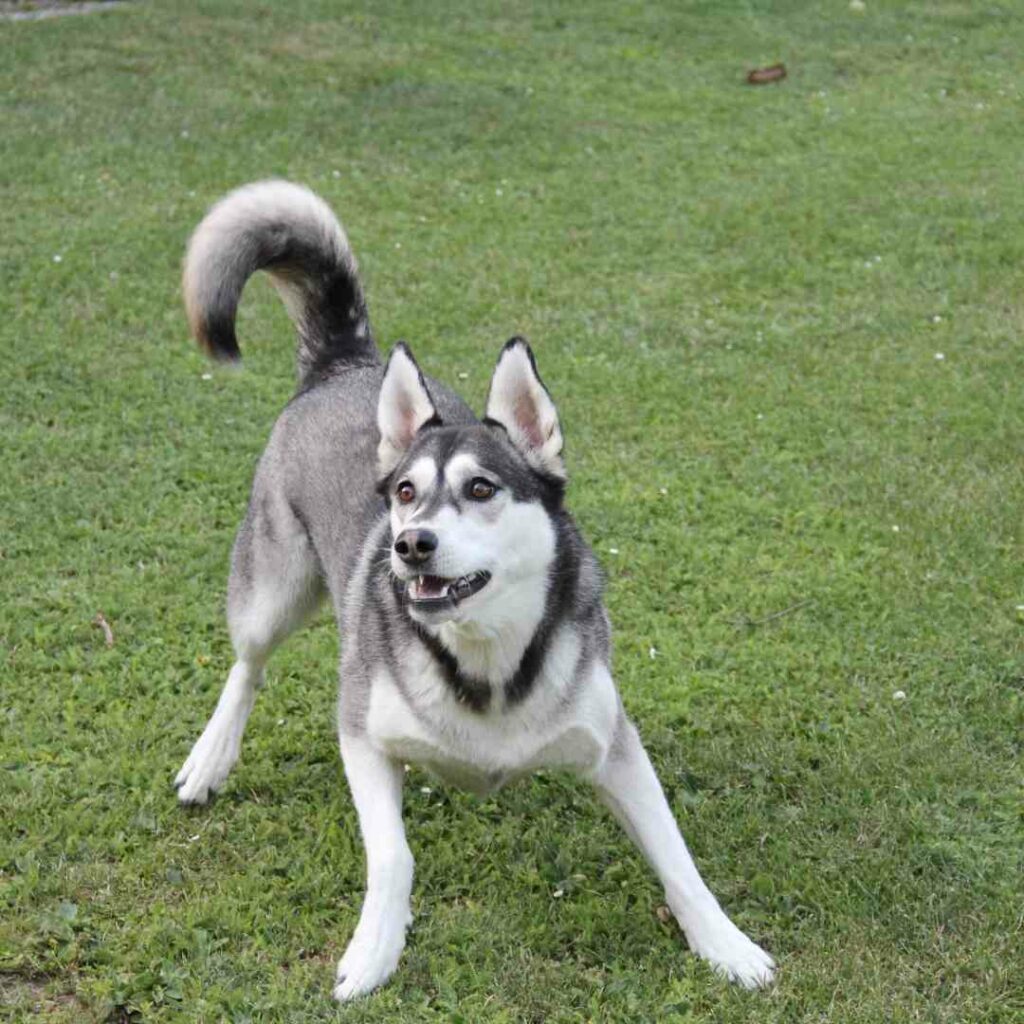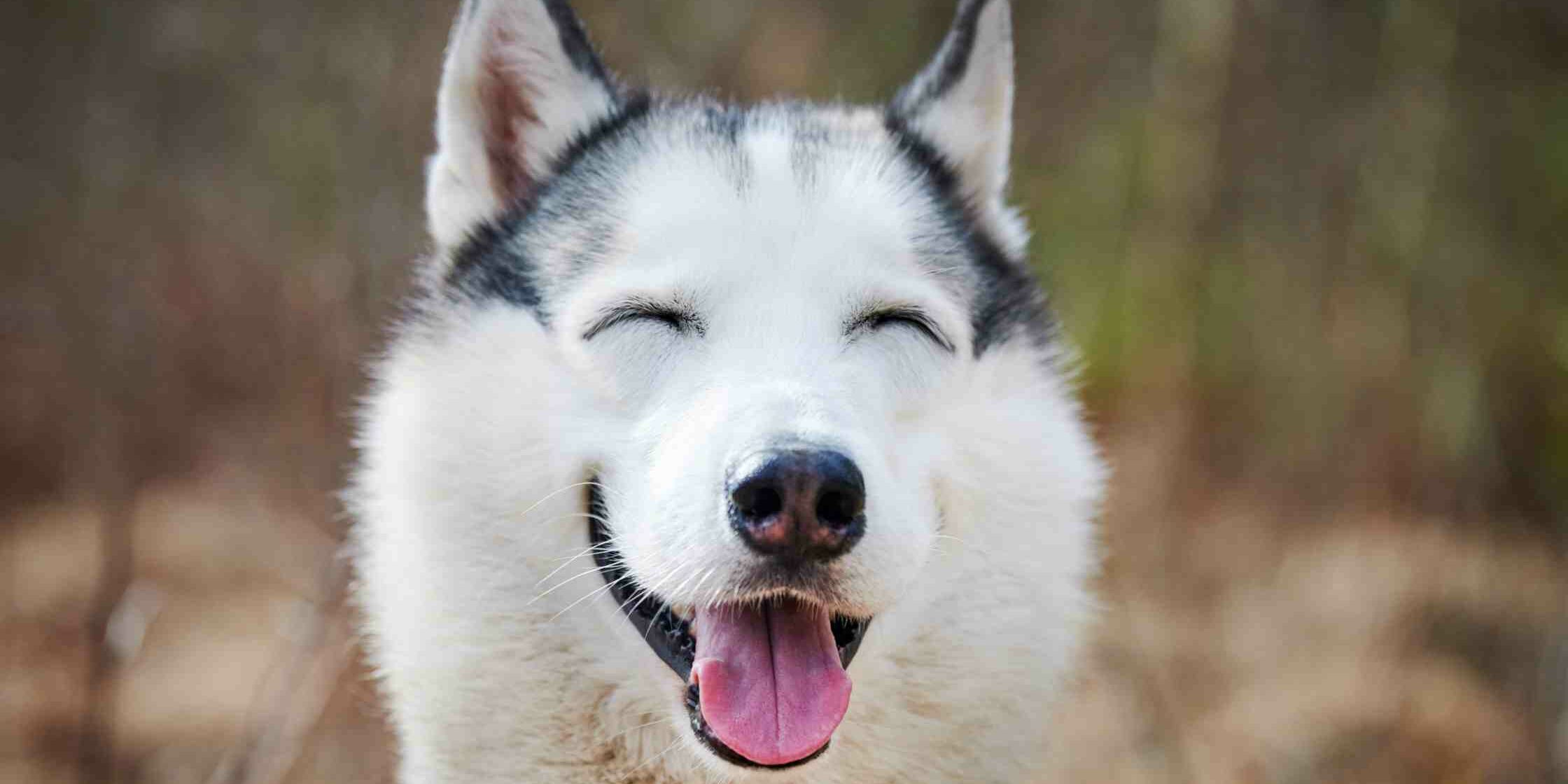Have you ever wondered why huskies are so vocal? Known for their communicative nature, these energetic dogs often express themselves through various sounds like howling, whining, and even something that sounds a bit like talking. While they may not be able to form words as humans do, their vocalizations play a crucial role in how they interact with their owners and the world around them. Your husky’s vocal antics aren’t just for show; they’re an integral part of their expressive language—each howl, bark, or whine has a purpose.
But what’s behind this behavior? You might find yourself puzzled (or even amused) by the sheer variety and frequency of sounds your husky makes. It’s not just about wanting attention or food; the roots of their vocal nature run deep. As you continue to unravel the mystery of your husky’s chatter, you’ll learn that genetics, environment, and socialization all play their parts.
Key Takeaways
- Huskies use a range of vocalizations to communicate with humans and other dogs.
- Factors like genetics, environment, and training influence why huskies are so talkative.
- Understanding and responding appropriately to husky vocal behavior can strengthen the pet-owner bond.
Understanding Husky Vocal Behavior

As you embark on the delightful journey with your husky, understanding their vocal behavior will deepen the bond between you two. Huskies are renowned for being a highly vocal breed, employing a range of sounds to express themselves.
Communication Within the Pack
Within the dynamics of the pack, each husky’s howl, bark, or whine serves a critical role. Pack dogs like huskies communicate to coordinate activities, signal alarms, and maintain social harmony. They use their voices to locate one another when separated by distance (or different rooms in your house).
Expressions of Emotion
Ever heard your husky ‘speak’ and thought it was almost human-like? Huskies vocalize to express a spectrum of emotions, from joy to frustration. A content husky may emit soft noises, while an agitated one might resort to loud, persistent talking. Recognizing these vocal cues helps you understand and cater to your husky’s emotional well-being.
Attention and Needs Signaling
Your husky’s chattiness is often just their way of trying to tell you something important. Whether they’re hungry, in need of playtime, or just craving your attention, they’ll employ an array of noisy tactics like barking or whining. It’s like they’re saying, “Hey, you! Yep, I’m talking to you – let’s interact!”
Understanding these subtleties in your husky’s behavior will make you appreciate their talkative nature even more, and frankly, life’s never dull when you’ve got such a vocal companion by your side!
The Role of Genetics and the Environment
Explore the symphony of factors that influence Huskies’ distinctive vocal nature. Known for their impressive vocalizations, it’s like Huskies have something to say, and they’re not afraid to speak their minds.
Inherited Traits from Wolves
Imagine just for a moment—you’re hearing the distant howl of a wolf. That same primal instinct echoes in the DNA of Huskies. These modern pack animals inherited the urge to vocalize from their ancestors, the wolves. Think of it as a throwback to their wild relatives, where howling plays a crucial part in communication across the vast wilderness.
Adaptations as Sled Dogs
As sled dogs, Huskies have developed a range of sounds to signal their intentions and needs. Racing over the tundra, the ability to communicate was vital, be it a sharp bark to warn of danger or a mournful howl that cut through the cold air, calling the pack to attention. Their environment demanded they be vocal, and so, like the best of adaptors, that’s precisely what Huskies became. With every bark, yip, and howl, they fulfill their role in the sled dog hierarchy and maintain the harmony of the pack.
The Impact of Training and Socialization
When you bring a vocal breed like a husky into your life, understanding the impact of training and socialization can transform your experience. By effectively training for quieter behavior and integrating socialization, you can manage and even appreciate their expressive nature.

Training for Quieter Behavior
Training your husky to be quieter starts with consistency and patience. If your husky is prone to expressing excitement with barks and howls, you can establish a routine that includes quiet time sessions. Use a calm tone of voice and encourage focus by removing distractions. Introduce commands such as “Quiet” or “Hush,” and pair them with rewards like treats or affection when they respond appropriately. Remember (especially when they look at you with those pleading eyes), that persistence is key—you’re the pack leader, after all.
- Commands: “Quiet,” “Hush,” paired with hand signals.
- Rewards: Treats, playtime, affection.
- Routine: Set scheduled quiet time sessions and practice commands daily.
Socialization and Its Effects
Your husky is a social creature, and the way it interacts with others has a lot to do with its upbringing. Exposing your husky to a variety of scenarios and beings (think friendly cats, the neighborhood mailman, or the vet) can have an immediate effect on reducing anxiety-driven vocalizations. You might even find that socialization helps with separation anxiety; a socialized husky may feel more comfortable alone or react less to external sounds if they’re accustomed to them. However, remember, there’s always a chance (just like you at a surprise party) that they might get overexcited, so continuous social interactions are instrumental to balance their behavior.
- Puppy Socialization: Introduce to various people, animals, and environments.
- Vet Visits: Regular check-ups can reduce anxiety around veterinary care.
- Reacting to Sounds: Expose them to different sounds to minimize overreaction.
By integrating structured training and comprehensive socialization into your husky’s life, you harness the power to significantly influence their vocal behavior. And remember, every moment you spend together strengthens your bond—full of tail wags and, yes, the occasional conversational howl.
Managing and Responding to Husky Vocality
When it comes to your vocal husky, understanding their needs can help you manage their barks and howls effectively. Let’s explore some specific ways you can create a better environment for your chatty companion and respond to their vocal cues appropriately.
Creating a Supportive Environment
Your husky thrives in an environment where they feel part of the pack—your family. Start by ensuring they have a quiet space to call their own, where they can retreat when the world is just a bit too loud (maybe the neighbors are having one of those all-night karaoke sessions again). Remember, attention is like a currency to your husky; they cherish it. So, why not sprinkle in some fun exercise sessions to help them channel their energy? It’s not only a blast to play fetch, but it also tires them out, making them more likely to enjoy some quiet time. Is your husky feeling lonely? Make sure they have enough toys and treats to keep them occupied when you’re not around; think of it as their own little hoard of happiness.
Understanding and Reacting to Vocal Cues
Think of your husky’s vocalizations as their way of texting you—they just don’t have thumbs. (Imagine the typos if they did!) Excitement barking? That’s your furry friend saying, “Hey, you’re home! You won’t believe the day I’ve had.” It’s crucial to listen and react accordingly. Provide care and attention when they seem to ask for it, but also guide them gently towards being more quiet when necessary. If they’re barking for a treat, remember moderation is key. There’s a fine line between rewarding them and accidentally teaching them that barking equals treats. Sometimes, they need a soothing word or a calming pat; other times, they may just want to let out a howl because, well, it feels good. Remember, vocal dogs are not trying to be a nuisance; they’re communicating. So, next time your husky decides to serenade the block, take a moment to ask, “What’s on your mind, buddy?” And maybe, just maybe, those howls will turn into contented sighs.
Frequently Asked Questions
Curiosity has surely struck you about why huskies exhibit such a colorful palette of vocal sounds. Let’s get to the heart of your burning questions.
How can you explain the tendency of Huskies to be expressive with their sounds?
You might have noticed (and heard) that your Husky doesn’t just bark – they’re orchestra conductors of their own vocal repertoire. Their expressiveness goes back to their lineage; communication is key among their pack in the wild. This trait for vocalizing extends beyond mere barking, as Huskies are known to use a range of sounds to express themselves.
What causes Huskies to vocalize frequently, especially in the morning?
Your Husky’s morning vocal exercises could be a doggy “hello” to the world (and to you). Their increased activity after waking up, combined with the excitement of a new day, prompts them to announce their readiness to engage with their surroundings.
Is there a reason behind the dramatic vocal expressions seen in Huskies?
Absolutely, you’ve seen those YouTube videos of Huskies seemingly talking back at their owners. While they’re not exactly discussing the weather, Huskies use their dramatic vocal expressions to tell you there’s something they need or want, or perhaps they’re just brimming with energy and have to let it out somehow!
What makes a Husky suddenly become more talkative than usual?
If your usually chatty Husky is suddenly giving you the full conversation, consider their environment – changes or stimuli could’ve sparked a sudden desire to express more fervently. Maybe they’ve picked up on something new in their territory, or perhaps they’re sensing your emotions and responding in kind.
In what ways do Huskies communicate differently from other dog breeds?
While other breeds may rely heavily on barking, Huskies tend to use a myriad of sounds; they howl, whine, and even chirp. This distinctive way of communicating isn’t just for show – it’s a throwback to their ancestry, where varied calls served specific purposes, like rallying the pack or signaling distress.
Is the vocal nature of Huskies a trait they are born with?
Yes, it seems their loquacious nature is part of the package – from the moment Huskies enter the world, they’re equipped with a penchant for vocalization. Inherited from their ancestors, this trait is as much a part of them as their stunning blue eyes or their thick fur coats.






